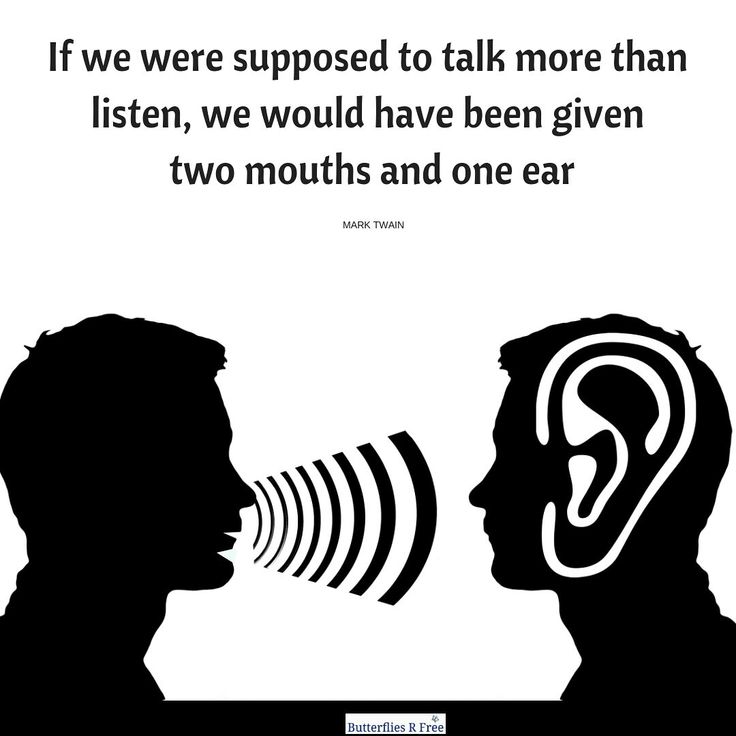Conversations in your head
Why Do I Replay Conversations in My Head?
If you’re thinking, “Why do I repeat conversations in my head?” you’re not alone. It’s called rumination — and it’s not that uncommon.
Whether you can’t shake off the last meeting you had with your boss, or you’re repeatedly thinking about last night’s chat with your partner, you may feel like your brain is stuck in a loop.
When this happens, it’s natural to think you’d do anything to give your mind a rest… if only you knew where to find the magic “off” button. It’s not uncommon to feel this way.
To understand how ruminating thoughts work, it can be helpful to acknowledge why they happen in the first place.
The word “rumination” describes a process of having certain thoughts on repeat.
For some people, ruminating thoughts are a way to control anxiety. It may mean you’re replaying life events in an attempt to make sure that next time, you’re prepared and won’t feel as anxious.
Repeating entire conversations in your head is a type of rumination. It’s how your mind attempts to self-soothe.
The more you replay the details of a conversation, the more you may feel you can interpret what happened. You may also find that this helps you plan for a future outcome. It’s an attempt to reduce the anxiety that event may be causing you.
The challenge, though, is that rumination can be a difficult treadmill to get off, once you’ve stepped on. It can consume your entire day and make it difficult to stay rooted in the present moment.
But the process isn’t always voluntary, and in any case, you can learn to manage it.
“Rumination can develop as a result of traumatic experiences or the false belief that repeatedly thinking about this one thing can help solve the problem,” says Natalie Bernstein, a psychologist and therapeutic life coach in Pittsburgh, Pennsylvania. “There’s an idea that forcing ourselves to think about a situation will lead to a solution.”
This can sometimes be confused with obsessive thinking, which is when intrusive and unwanted thoughts become persistent and cause you a great deal of distress. In some cases, they may lead you to engage in compulsive rituals to decrease this distress.
In some cases, they may lead you to engage in compulsive rituals to decrease this distress.
Rumination often means you replay an event in your mind. Obsessions are often unwanted and related more to a fear of possible experiences than recollections of actual events.
Obsessive thinking can be a symptom of obsessive-compulsive disorder (OCD).
Rumination may also be a symptom of mental health conditions:
- generalized anxiety disorder (GAD)
- major depressive disorder (MDD)
- phobias
- post-traumatic stress disorder (PTSD)
- postpartum depression or psychosis
To be a symptom of these or other conditions, rumination needs to be present with other specific symptoms. On its own, it may only mean you’re experiencing anxiety about a particular event, and that happens to everyone.
Anticipatory anxiety is when you experience gloom, dread, or stress when you think about something that hasn’t happened yet.
For example, if you live with panic disorder, you experience anticipatory anxiety about having another panic attack. It hasn’t happened yet, but you dread that it may or will happen.
It hasn’t happened yet, but you dread that it may or will happen.
“Anticipatory anxiety lends itself to rumination quite easily,” says Bernstein. “Our brain can’t solve problems when we don’t know the issue, so we think that by considering all possible options, we will be prepared to handle any of them.”
Rumination can sometimes cause anxiety, though. Using the same example, you may experience a panic attack only from repeatedly anticipating it may happen. Your rumination may cause high levels of anxiety, which in turn may trigger a panic attack.
We all repeat conversations or events in our heads from time to time.
For example, it may be natural for some people to replay a situation that caused them great distress or hurt. If you just broke up with your partner, you may find yourself thinking about every detail of what they said or what you did or didn’t do.
If you know you’ll see your former partner at a party, you may replay all possible scenarios in your head before attending the party.
Eventually, though, these repetitive thoughts may ease up and become less frequent. The accompanying emotions may also become less intense.
But because rumination may become chronic and be a symptom of a mental health condition — or be associated with trauma — sometimes it’s a good idea to consult with a professional to figure out how to find relief.
While it may not be easy to pull yourself out of an endless thought loop, it’s possible to manage and stop rumination.
Consider the following tips as a first step:
Grounding exercisesGrounding is a somatic exercise that implies bringing your mind to the present moment and focusing on your body sensations.
“Simple exercises like taking a moment to name one thing you see, smell, taste, feel, and hear [can] pull you out of the future thinking and worrying, and bring you back to the present,” says Kristin Miller, a family physician in Yukon, Oklahoma. “The possible problems of the future cannot exist in the present. ”
”
“I have found in my practice that my anxious patients are also some of my smartest patients. They are perfectionists,” says Miller. “They replay scenarios in their mind that they feel they did not control the way they wanted to, or worry about not having control in the future and try to think of a way to change it and make it a better situation.”
If you live with perfectionist tendencies, consider going easier on yourself.
If you’re thinking about a tough conversation, for example, know that you did the best you could at the time with the tools you had — and if you would’ve known differently, you would’ve done differently. You’re only human.
Counter your brainWhen you catch yourself ruminating, try to talk to your brain and tell it to stop, says Bernstein.
You could say things like, “Not knowing what will happen is hard but I can handle anything that comes my way.”
To build onto this, you may want to write out a solution to any problem your mind comes up with, as a way of interrupting the pattern.
You may find that rumination comes up in your quiet moments, like while driving or taking a shower.
If you’re able to, change your state of mind or surroundings. You may want to try:
- moving your body
- calling a friend
- turning on music
- making artwork
- playing an instrument
Research shows that doing short bouts of exercise and spending time in nature can also help some people with rumination.
Write it outFor this, consider getting a piece of paper, setting a timer for 2 minutes, and writing all your thoughts down on paper, says Bernstein.
“It doesn’t have to be legible,” she says. “Scribble if you need to, just get it out of your head and onto the paper. When you’re done, tear it up and throw it away.”
Zoom outSometimes, if you add a little perspective, it can make all the difference. You can ask yourself these questions:
- Will it matter in 5 hours?
- Will it matter in 5 days?
- Will it matter in 5 weeks?
- How else can I view this situation?
- Have I overcome or gotten over something like this before?
You may be ruminating over your perceived challenges, so focusing on your self-esteem by working on yourself may help, says Nereida Gonzalez-Berrios, a psychiatrist in Houston, Texas.
“Focus on the strengths and skills that make you feel good about yourself,” she says. “Try to feel good enough from within. This will reduce rumination and anticipatory anxiety.”
Practice mindfulnessYou may find it helpful to take on a yoga, mindfulness, or meditation practice. To start, it can be as simple as breathing in for 5 seconds and breathing out for 5 seconds.
“You can be present in your moments by practicing mindfulness,” says Gonzalez-Berrios. “Mindfulness helps you to understand the connection between thoughts and feelings. It helps to control automatic, racing thoughts.”
Cognitive behavioral therapy (CBT) is considered a useful treatment approach for all mental health conditions that may have rumination as a symptom.
A diagnosis is not necessary, though. If you feel you ruminate from time to time, and this causes you anxiety or distress, a therapist trained in CBT can help you build coping tools for every day.
A few other options include:
Rumination-focused cognitive behavioral therapyResearch shows that this modality can be helpful for those who live with rumination as a symptom of depression. It works by helping you alter and reframe your thinking process. This, in turn, improves your mood.
It works by helping you alter and reframe your thinking process. This, in turn, improves your mood.
This is a way of channeling repetitive thought patterns into something more positive. Research shows that, in a therapeutic setting, it can be helpful to focus on:
- savoring
- reminiscing
- compassion
- gratitude
- mantra-based intervention
Whether your doctor suggests medication will depend on the specifics of your case. If rumination is a symptom of a condition that may show progress with medication-based treatments, a health professional may include these in your plan.
Rumination occurs on a spectrum. For some, it can be a small nuisance. For others, it can interfere with your everyday life.
Rumination may or may not be a symptom of a mental health condition. In any case, you can manage these looping thoughts and relief is possible.
If you feel you need support in managing those conversation replays, consider seeking help from one of these resources:
- American Psychiatric Association’s Find a Psychiatrist tool
- American Psychological Association’s Find a Psychologist tool
- Asian Mental Health Collective’s therapist directory
- Association of Black Psychologists’ Find a Psychologist tool
- National Alliance on Mental Illness Helplines and Support Tools
- National Institute of Mental Health’s Helpline Directory
- National Queer and Trans Therapists of Color Network
- Inclusive Therapists
My “Bipolar Brain”: Constant Conversations in My Head
Post Views: 183,747
Views
Negative thoughts about prior experiences pop into my head, then I have a conversation with myself about them.
 All day, every day, on repeat.
All day, every day, on repeat. If video is not showing, click here
Endless Internal Self-Talk
Today I am going to speak with you about the conversations I have with myself—conversations that are constantly going on in my mind.
A few nights ago, my wife looked over at me and said, “Dave, why are you so quiet today?”
I said, “I don’t know. Am I being quiet? I didn’t realize.”
Then, a little while ago, I thought about it and realized that I am having a constant conversation with myself in my mind. And by “constant” I mean every minute of every hour of every day.
Looping Negative Thoughts
Here’s what happens: A thought will pop in my head—most of the time, it’s a negative thought—about experiences I have had; then I will have a conversation with myself about this experience. Usually, these conversations will last from 10 to 30 seconds or sometime in between. Then I’m off to another conversation for 10 to 30 seconds, and then back to the original.
Efforts to Silence My Nonstop Self-Talk
#1 Music
I listen to music, but I can never, ever, remember listening to a song all the way through. At some point during the song, whether it be 10 seconds or half a minute in, a thought will pop into my head. And then I will think about it and converse with myself about it. Then I will go back to the music. Then I will have a thought and go back to having a conversation with myself …
#2 Meditation
I meditate, and it helps, but it is not a solution. It gives me some quiet in between the thoughts because I will have a thought and start a conversation, and then I will let it go. Then, 10–30 seconds later, I am off to another thought.
I go back and forth, back and forth, and back again. So, for me, meditation gives only slight, temporary relief.
#3 Distraction via Television
Watching TV is helpful for me because I am focusing on something else.
#4 Reading: The Best Solution So Far
The most relief I get from this constant chatter, revisiting negative thoughts on a loop, comes from reading a book.
Sharing My Concerns & Looking for Understanding
I think—no, I’m sure—that everyone has thoughts that pop into their head and trigger conversations with themselves. I just wonder if my bipolar brain is the reason my thoughts are constant.
The next time my wife asks, “Why are you so quiet tonight?” I will say “Because I have been having a conversation with myself all day long.”
I’m sure she is going to respond, “About what?”
Unfortunately, I will have to say, “About everything and nothing.”
But by talking about it with her, I hope she will understand. By starting that conversation, I could gain insight into these constant thoughts and conversations I have with myself.
Learn more:
4 Physical Signs of an Impending Manic “Breakdown”
Which “Bipolar Me” Is Going to Wake Up Today?
Originally posted December 16, 2016
obsessive thoughts, symptoms
About the author
Related
The voice in your head: why we talk to ourselves
During the day you do a lot of ordinary and automatic actions. At this time, our brain is often engaged in a real dialogue with ourselves. Each of us supports such communication, without thinking about whether it is normal at all. Royal Cheese will answer this question.
At this time, our brain is often engaged in a real dialogue with ourselves. Each of us supports such communication, without thinking about whether it is normal at all. Royal Cheese will answer this question.
Why all this talk?
A person during wakefulness is in an unceasing stream of thoughts. They can lead you anywhere: from the most ordinary and routine thoughts to fantasies about a fairy-tale world in which it would be so cool to live. And sometimes the strangest things can be said out loud when no one is around.
People rarely think out loud in public. This is due to the stigma and direct association of muttering with mental disorders, as well as the fact that some ideas should not be voiced. Such speech arises due to the non-monolithic nature of the human psyche, a large number of different processes take place in it. Some may be background, others conscious. When talking, we help different parts and features of the psyche to coordinate actions and, accordingly, to negotiate. Sometimes we can hear not our own voice, but the voice of a person close to us, whose opinion we listen to in “real life”. Based on one of the central theories in this field, the mind from a very early age begins to actively perceive the world in its own way, that is, to build memories and store them. Simply put, any emotional experience or shock contains not only a sense of self, but also some kind of “invisible” addressee.
Sometimes we can hear not our own voice, but the voice of a person close to us, whose opinion we listen to in “real life”. Based on one of the central theories in this field, the mind from a very early age begins to actively perceive the world in its own way, that is, to build memories and store them. Simply put, any emotional experience or shock contains not only a sense of self, but also some kind of “invisible” addressee.
In a relaxed and benevolent state, silent voicing of one's thoughts takes place. They are absolutely free and do not depend on templates or what they want to hear from you. In psychiatry, this phenomenon is sometimes referred to as "egocentric speech", which occurs in a variety of circumstances, for example, from boredom or from a huge amount of information processed, affairs or fatigue.
A person may look quite strange from the outside at this moment, but this is a kind of protective barrier, sometimes from a feeling of loneliness, self-doubt, or it helps to concentrate and gives strength. It may be embarrassing for some to admit to having a peculiarity, but such behavior is extremely common and normal, almost every person on the planet has a dialogue with himself. Psychiatrists do not believe that this is something from which you will certainly “need to grow”. Moreover, it is the practice of an absolutely healthy psyche.
It may be embarrassing for some to admit to having a peculiarity, but such behavior is extremely common and normal, almost every person on the planet has a dialogue with himself. Psychiatrists do not believe that this is something from which you will certainly “need to grow”. Moreover, it is the practice of an absolutely healthy psyche.
Mental health
First of all, a monologue or even a dialogue with your alter ego is a good way to get rid of negative thoughts, feelings of guilt or fear. And phrases spoken aloud help to work out their own thoughts, organize the structure, improve memory and help to express them correctly and accessible in a real conversation. When a person maintains a conversation with himself, he automatically solves the impending and haunting problems. The phenomenon is known as “self-explanation,” a healthy problem-solving practice.
Research has been done at various times showing that telling yourself a situation that once caused trauma is more likely to help you learn lessons, and in other situations, help you cope with the task. For example, if you lost your car key, then commenting on your previous actions will build a logical chain and help you detect the loss. In addition, practice throws out emotions and improves mood.
For example, if you lost your car key, then commenting on your previous actions will build a logical chain and help you detect the loss. In addition, practice throws out emotions and improves mood.
A positive conversation brings one out of the onset of a depressive state, gives rise to confidence in one's actions and decisions made, and there is a motivation to continue, for example, work or study. And lonely or isolated people, thanks to internal dialogues, get the unconscious effect of the presence of a loved one nearby. The picture looks quite positive, and given that almost everyone is in dialogue with themselves, no disturbing thoughts may arise. Nevertheless, sometimes the psyche presents surprises and crosses the line of normality.
Path to disorders
Alas, while silent dialogue promotes a sense of control and can also improve performance, it sometimes speaks of problems ranging from the most innocuous to the more severe. For example, the voice makes it difficult to fall asleep before an important meeting, because it is busy "rehearsing" the event, and self-digging and self-criticism lead to anxiety. In addition, those people who already have a confirmed diagnosis of depression, no matter how hard they try, cannot stop the flow of thoughts when they need to focus on some important matter. So, it turns out that, on the one hand, dialogues are very necessary, on the other hand, without the ability to use them only in your own interests, they can do much harm.
For example, the voice makes it difficult to fall asleep before an important meeting, because it is busy "rehearsing" the event, and self-digging and self-criticism lead to anxiety. In addition, those people who already have a confirmed diagnosis of depression, no matter how hard they try, cannot stop the flow of thoughts when they need to focus on some important matter. So, it turns out that, on the one hand, dialogues are very necessary, on the other hand, without the ability to use them only in your own interests, they can do much harm.
There is another point: random muttering indicates a mental disorder. This is a slightly different type of internal dialogue, indicating an early stage of schizophrenia. Also, disturbing inner speech is a sign of obsessive-compulsive disorder in a variety of manifestations: a person becomes a hostage of his own thoughts and ideas, most often extremely negative. Then fear and anxiety are so strong that the patient simply cannot control his speech.
If you discard all the negative "bells" of a conversation with yourself, then the process will lead to positive consequences, if you use it correctly. The one who mutters under his breath or “plunges” into thinking is not crazy, but perhaps a genius who uses all the working resources of the brain.
Why the voices in your head are normal
April 3, 2018Life
There are five reasons why talking to yourself is completely natural and even beneficial.
Share
0Almost everyone catches themselves behind this oddity from time to time. “So, it’s time to go home”, “I need to go have a bite to eat”, “Where did the pencil go? I was just here!”, “How tired I am of everything!” Suddenly, a voice in our head informs us. Although, it seems, I could do without comments: why duplicate in words what you are already aware of?
Okay, the internal monologue is more or less understandable. However, it often happens that the internal “talk with a smart person” develops into an external one: without noticing it, you suddenly start talking to yourself out loud, frightening those around you. “He is completely wild, he talks to himself,” colleagues and friends think or even openly tease. “Maybe I’m going crazy and this is some kind of mental disorder ?!” - without any jokes, your own voice in your head is scared.
“He is completely wild, he talks to himself,” colleagues and friends think or even openly tease. “Maybe I’m going crazy and this is some kind of mental disorder ?!” - without any jokes, your own voice in your head is scared.
Stop. No need to be afraid.
Lifehacker found out why such monologues are absolutely normal and even useful.
Everyone has a voice in their head
Do you know that it is impossible to read a text without saying it to yourself? If you don't believe me, try it. No matter how hard you try, the words you read will still be duplicated by the “voice in your head”. This is called subvocalization.
The reason is that visual and audio information are processed by the same parts of the brain. And they also take an active part in the thought process. When we see a written word, the brain reacts to it in the same way as if we heard it. This leads to the appearance of an inner voice reciting the text. When we think, the situation repeats itself: our thoughts automatically form into an internal monologue, since the same neurons are involved in both processes.
Subvocalization is generally a very interesting phenomenon, which allows scientists to suggest that it was speech that played the most important role in the evolution of man to Homo sapiens: the more words our ancestors knew, the deeper their thought process was and the greater was the need to create new words for expansion of the internal monologue. But now it's not about that.
The inner voice is inherent in every person and is so strong that researchers from the University of California at Berkeley are trying to create a medical prosthesis that would allow paralyzed people or those who are in a coma to “speak” on its basis.
So talking to yourself is completely normal. They can be suppressed for a while - for example, speed reading enthusiasts recommend chewing gum or mooing under your breath for this. But it will not be possible to completely get rid of the inner voice. Well-formed and clear phrases like “Should I go get a bun?” from time to time it will sound in your head.
Well, a bonus. Inner speech, whether reading or thinking, is usually accompanied by articulation: we barely noticeably move our lips and tongue while repeating words. In most cases, people at the same time "keep their mouths shut", limiting themselves to a mental monologue. But when self-control weakens for some reason (you are tired, confused, there are too many distractions around), the monologue begins to sound out loud.
And it turns out it's even useful!
Why you need to talk to yourself
An inner voice that speaks loudly is a convenient help in everyday life. Here are just a few ways to put it into practice.
1. It helps in the search
"Where are the keys?" - you are trying to remember aloud, and you are doing the right thing. American psychologists Gary Lupyan and Daniel Swingley, in an article for the Quarterly Journal of Experimental Psychology, called such phrases "self-directed speech". The essence of the phenomenon discovered by scientists is simple: when we pronounce a single word or concept, the brain focuses on the thing that it means, clearly and clearly represents it, and this makes it easier for us to visually search for the desired object.
So wander around the supermarket window, muttering under your breath “Milk, milk, where is the milk?” or ask “Where did my phone go?!” is a sure way to find what you're looking for faster.
2. It helps to concentrate on the important
There is a lot of informational noise around us, which scatters attention, not allowing us to focus on one thing. Unconscious speaking helps the brain prioritize. You have probably noticed: if it is noisy around, and you are trying to read, for example, an important business letter, it is easier for you to do this by moving your lips and even reading the text in a whisper. This is it: subvocalization, which is necessary for the brain to concentrate on the most urgent task.
3. It improves memory
The best way to remember text information is to read it out loud. That is why, in order to learn verses, we recite them, and repeat foreign words. Talking to yourself, yeah
4. This allows you to regain self-control
Saying to yourself “Quiet.














